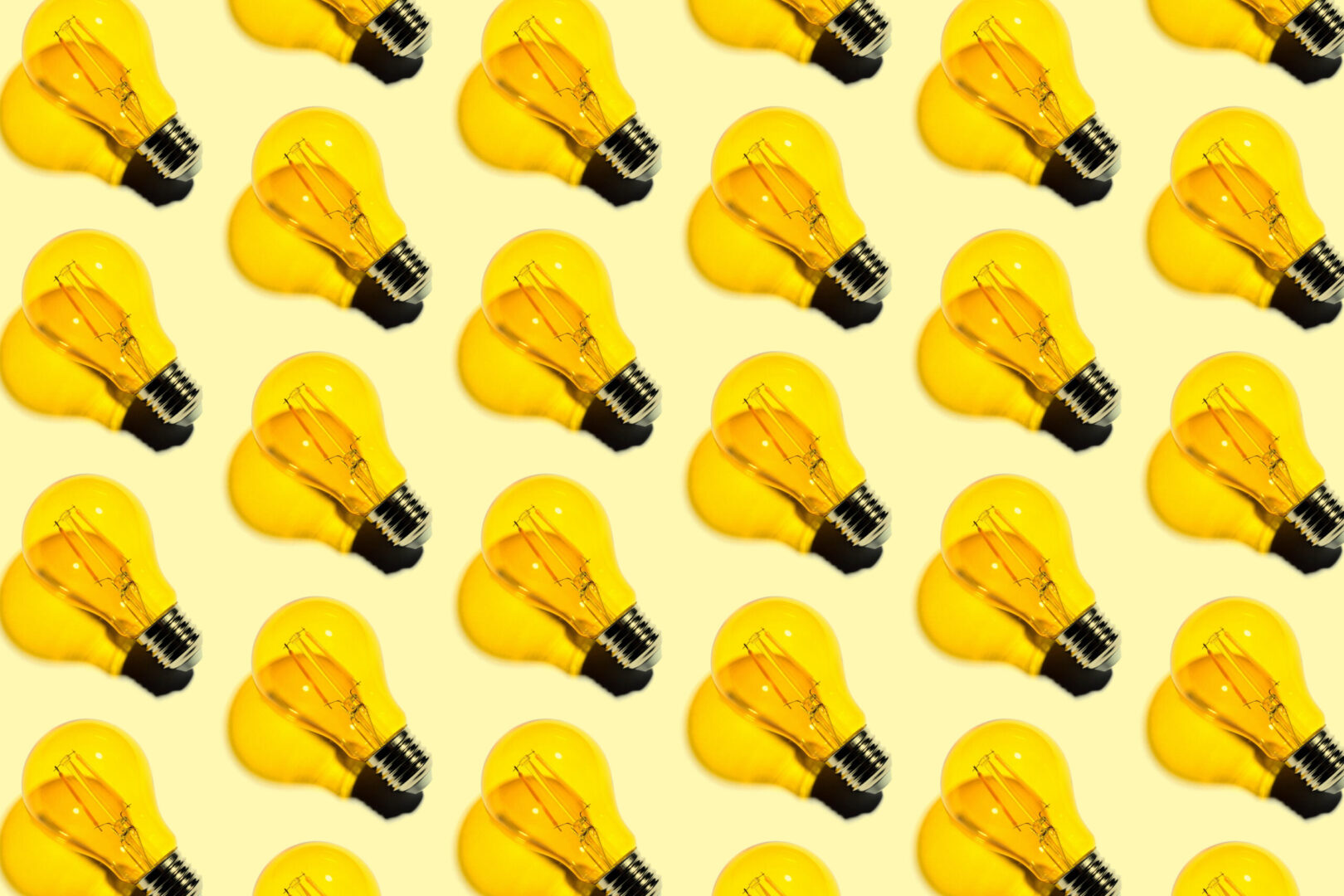Insights into the Challenges of ADHD: Understanding ADD

An epiphany is more than just a sudden revelation or an “aha” moment. It often occurs after a new perspective has been adopted.
As an ADHD coach, my objective is to help those struggling with attention deficit hyperactivity disorder (ADHD), perceive their disorder in a new light. Most of the people I work with have yet to have their 'aha' moment. This is evident from their similar stories of failed attempts at managing their ADHD and their feeling of being overwhelmed.
This is where my role becomes crucial in helping them realize a critical epiphany. They have been incorrectly comprehending the root cause of their ADHD challenges - from procrastination to productivity, from motivation to prioritization.
The following are some of the key ADHD insights I've collected and imparted to my clients over the years, aimed at helping them distinguish their symptoms from their identities and achieve their goals.
Each instance of us thinking involves our executive functions- cognitive processes that enable us to plan, organize, remember information and take action towards a goal. For people with ADHD, the process of thinking is effortful and challenging because these fundamental executive functions are weakened. This is why their brains tend to avoid thinking when it becomes too demanding, even if it is towards achieving a goal they desire.
[Get This Free Download: Secrets of the ADHD Brain]
I spend considerable time aiding my clients into understanding that this tendency closely relates to most challenges associated with ADHD. Effectively managing ADHD is more about simplifying the process of thinking so as to lessen the desire to escape and foster goal-directed action.
Just as thinking can be strenuous due to executive dysfunction, self-regulation is equally challenging. Poor self-regulation complicates controlling emotions and impulses, particularly those related to feelings. This difficulty in emotional regulation also makes enduring momentary discomfort for a goal challenging. The ADHD brain seeks immediate gratification, not delayed satisfaction.
The ADHD brain is likely to procrastinate when a task may involve some degree of unpleasantness. In my experience, this is often connected to ambiguity.
You might be unsure about the task ahead, or you may understand the end goal but find it tough to comprehend the steps involved to achieve it. Either way, if ambiguity leads to discomfort, avoidance becomes a natural response.
[Take This Quiz: How Seriously Do You Procrastinate?]
Regardless of where your procrastination takes root, it helps to acknowledge that you find the task difficult, even if others would perceive it as straightforward. For an ADHD brain that wrestles with arduous thinking and goal-oriented behavior, simplicity is a relative term. Admitting that a task is hard boosts self-awareness and encourages solution-oriented thinking. Questions like, 'Is the task hard because it is unclear? Do I lack the necessary skills or means to execute it?' might help.
Many with ADHD generally tend to label themselves as lazy or unmotivated if they do not accomplish a task. This perception could not be more incorrect. I recall a conversation with Roberto Olivardia, Ph.D., who proposed that our behavior, inclusive of avoidance, is driven by motivation.
Some of my clients, burdened by guilt, admit to me, "I'm unmotivated. I just sit on the couch all day and watch Netflix." I help them reframe this perspective. I say, "You are motivated- to watch Netflix." I further explain to them the connection between clarity and motivation. When we lack clarity in our tasks, our motivation to engage decreases.
Here's another perspective: Your brain, which is deficient in dopamine and unable to find pleasure in an unpleasant task (yes, even boredom is physically uncomfortable), is indeed motivated- to avoid pain and pursue immediate pleasure.
Understanding that there is no such state as being 'unmotivated' can help you refrain from self-blame. Fellow ADHD coach Laura MacNiven aptly stated, "You can't treat ADHD from a lens of shame or blame."
The tools and systems that conveniently work for others may not be useful for your ADHD brain. Worsening the matter, you may not even realize that you've fallen prey to the illusions of convenience.
I recently worked with a client whose productivity issues at work, unbeknownst to him, were in large part due to the company’s practice of communicating complex information and reports via email. Each time he received an email, he’d have to re-engage his mind on the topic, consider the new information he received, and develop a response — an effortful process that taxed his working memory. Email is convenient for others so he never questioned whether the tool worked for him. Once he did question it, he realized that he was better off talking — not emailing — with colleagues about dense, complex projects.
Think carefully about the systems and procedures you use in your day-to-day life. Are you sticking to unproductive methods because they seems to work for everyone else? Let go of what isn’t serving you. Consider the systems and tools to which you gravitate.
How many times have you organized items on your to-do list by order of importance, only to focus on low-priority items first over more urgent ones (and beat yourself up for it)? I call this “task Darwinism” — the natural selection process that tasks undergo and a common ADHD phenomenon.
You choose to do the less important task first not because you’re lazy, but because conditions and elements allow for it. You have clarity, time, and a conducive location, all of which facilitate performance. You avoid or skip over a task, even one you deem important, because it’s missing these elements.
Say you have an important presentation to prepare. Though you’re in a conducive location and have time and tools, you lack clarity on how and where to start. So, rather than focus on the presentation, you find yourself answering emails — a low-priority item on your list. You’re drawn to that item because you have all the right elements in place to facilitate action. Still, your inner voice reminds you that you should be preparing the presentation.
Remember the task Darwinism principle the next time you prioritize. It will save you from self-torment and allow you to think about the elements you need to take action on important items.
It takes most people about 15 minutes to fall asleep. It often takes much longer than that for people with ADHD. Why? Because waiting to drift into unconsciousness is boring, even uncomfortable. Many of my clients admit that they’ll do anything not to get into bed. If they are in bed, they’ll seek to stimulate their mind and further delay sleep. They do this even as they know that they’ll wake up exhausted the next day.
The trick to falling asleep is to find an activity that stimulates your reward-seeking brain, but not to the point where your mind won’t surrender to sleep. It will take a bit of self-observation along with trial and error to find the right balance of stimulation and mindlessness. If you need inspiration, consider the following strategies that have worked for some of my clients:
Constant feelings of guilt and shame are an unfortunate part of the ADHD experience for many people, especially those who did not have an explanation for their challenges until later in life. Ultimately, while there is useful information in these experiences, fixating too much on past mistakes and painful memories prevents progress.
Some people with ADHD may benefit from psychotherapy to learn how to cope with intense feelings. But mindfulness, meditation, and self-compassion are excellent tools to help regulate feelings, even with an emotional brain. Mindfulness decreases emotional reactivity, while self-compassion allows for self-forgiveness.
The content for this article was derived, in part, from the ADDitude ADHD Experts webinar titled, “7 Insights Into the ADHD Brain That Transform Lives” [Video Replay & Podcast #389],” with Jeff Copper, PCAC, PCC, MBA which was broadcast on February 22, 2022.
SUPPORT ADDITUDE Thank you for reading ADDitude. To support our mission of providing ADHD education and support, please consider subscribing. Your readership and support help make our content and outreach possible. Thank you.




